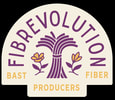|
The Fibers Fund "A catalytic fund to support small U.S. natural fiber and textile producers and processors, with a specific focus on environmental equity." The Fibers Fund supports building an equitable and regenerative domestic fiber and textile industry, both to combat the negative environmental and social impacts of the mainstream global textile industry and to support small businesses working on better alternatives.
The Fibers Fund recognizes that flexible sources of capital are necessary to supply businesses in the fibers sector with financial capital that meets specific needs at the right time, advance the adoption of climate beneficial agricultural processes that are rooted in cultural knowledge and heritage, and increase sector access to fair and just financing tools. Rebuilding U.S. natural fiber ecosystems is our opportunity to invest in change. The first set of five grants of the fibers fund was awarded for business technical assistance and capacity building. Exciting to begin executing the vision of this fund, which is to support U.S.-based, small to mid-scale regenerative and sustainable natural fiber and dye businesses. This first set of grantees represents an array of entrepreneurs and businesses who are part of expanding soil-based natural fiber ecosystems—across supply networks and domestic bioregions. Catalytic Grants Two grants were awarded to businesses profiled in the SAFSF Fibers Roadmap Case Studies: Seattle-based Botanical Colors and Oregon-based Fibrevolution. Botanical Colors offers natural dyes sourced from regional organic and regenerative farmers. They also provide natural dye education to textile and fiber artisans. Fibrevolution has a vision for the revival and establishment of regional fiber manufacturing hubs for bast fiber located in strategic growing regions around the U.S. These grants will help Botanical Colors and Fibrevolution unlock other sources of capital. Learn more on our Portfolio page. Black Fiber Cohort We are thrilled to introduce the inaugural Black Fiber Cohort. Envisioned and facilitated by Fibers Fund Co-Managing Director Teju Adisa-Farrar, the Cohort will provide tailored support to early-stage and emerging Black fiber entrepreneurs as their businesses grow. Environmental and cultural equity requires meeting Black entrepreneurs where they are at by recognizing historical and current disenfranchisement, and responding with nuanced support. Having a dedicated cohort prioritizes access and attention for each of the businesses’ particular needs. This inaugural group of amazing entrepreneurs and brands represents the possibilities for creating sustainable and equitable fiber ecosystems: Kept Studio: Brooklyn, NY. Kept Studio by artist Kesiena Onosigho is a textile studio, natural dye processor, botanical pigment + ink producer, and knit development processor. This grant will provide technical assistance for business structure and set-up, along with planning support to obtain a permanent studio with garden space. ROOLE: Durham, NC. ROOLĒ by Gordon Holliday is an upcycle and bio-fashion brand focused on reworking natural fibers. This grant will support the development of a local regenerative supply network for ROOLĒ—including partnering with a local Black organic cotton farmer—to produce a bespoke collection for NYFW 2024. MAHDIYYAH: New Jersey. MAHDIYYAH by Mahdiyyah Muhammad is a circular fashion brand with a focus on upcycled apparel exclusively using natural fibers. This grant will facilitate sourcing of soil-based textiles and natural dyes from small regenerative farmers for the purpose of creating a research-based collection, and doing free community workshops. diẹ̀diẹ̀ textile farm & studio: Piedmont, North Carolina. Adé Oni is the dynamic creative behind diẹ̀diẹ̀ textile farm + production studio, which is a locally-scaled textile farm and raw textile material production space. We provide low-carbon, raw, processed, and value-added cellulose-fiber and natural dye materials and educational experiences to the Piedmont NC bioregion and beyond. dièdiè is being designed and developed as a hybrid worker/producer cooperative business that centers regenerative land care, African and Indigenous material culture and craftways, ecological presence, creative expression, and healing justice.
1 Comment
|
AuthorWrite something about yourself. No need to be fancy, just an overview. Archives
August 2023
Categories |
STRATEGIC ECONOMIC DEVELOPMENT CORPORATION Member |
